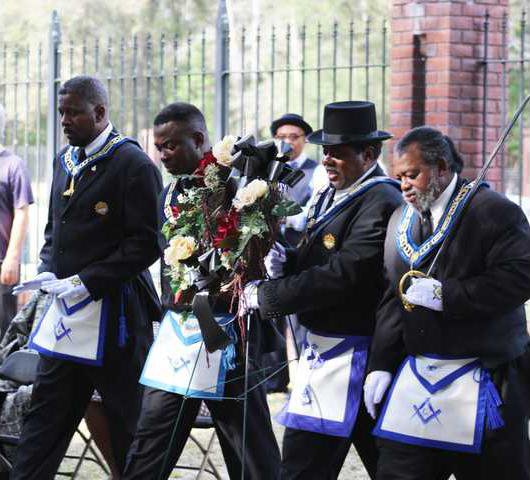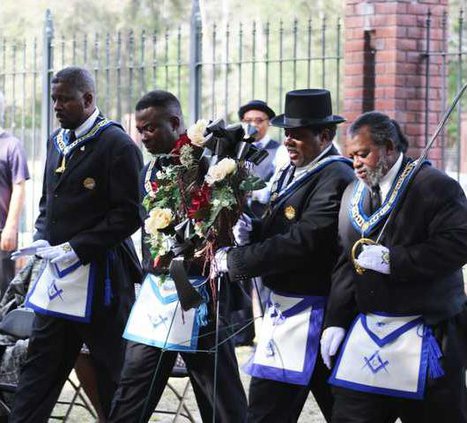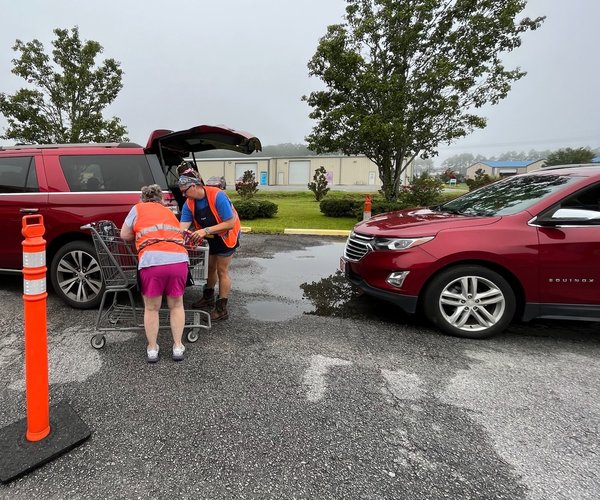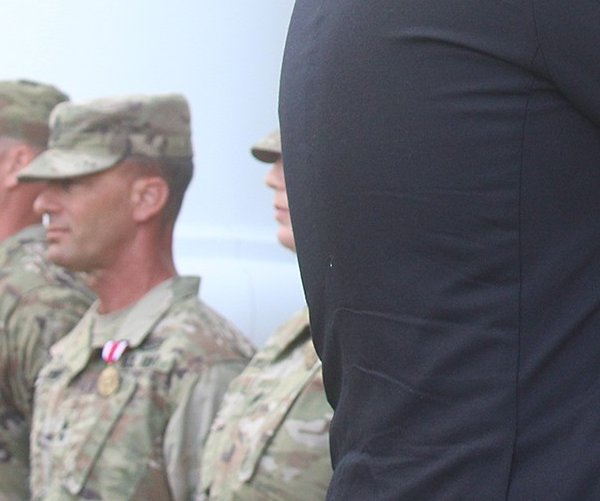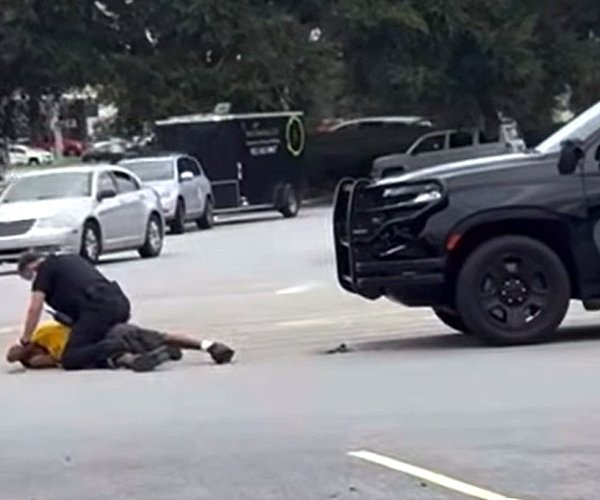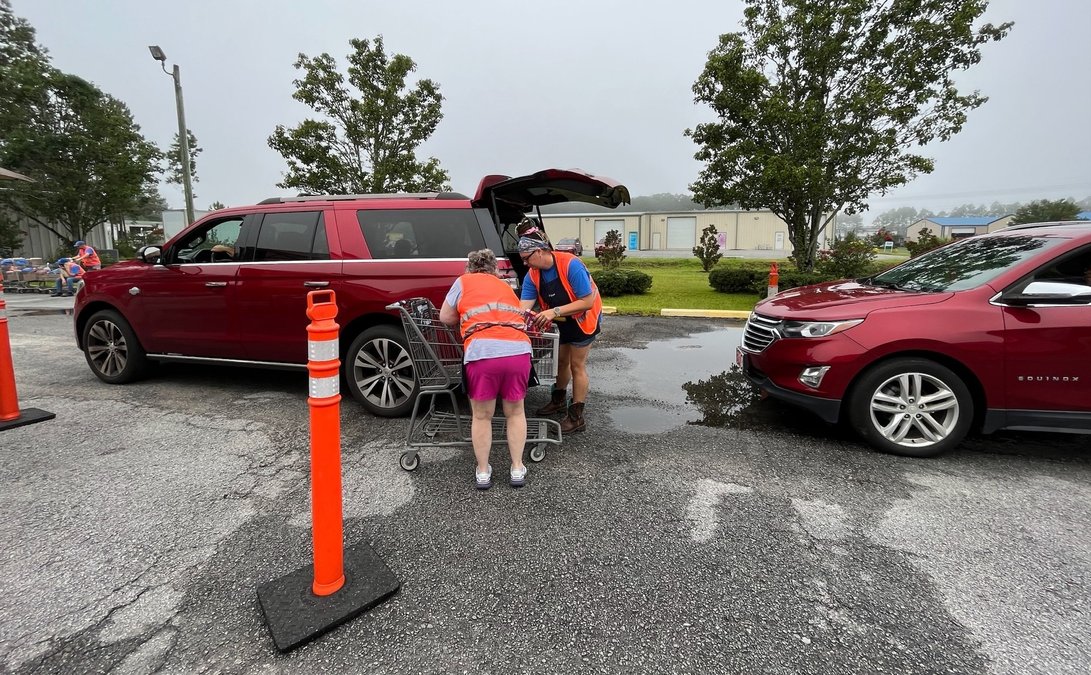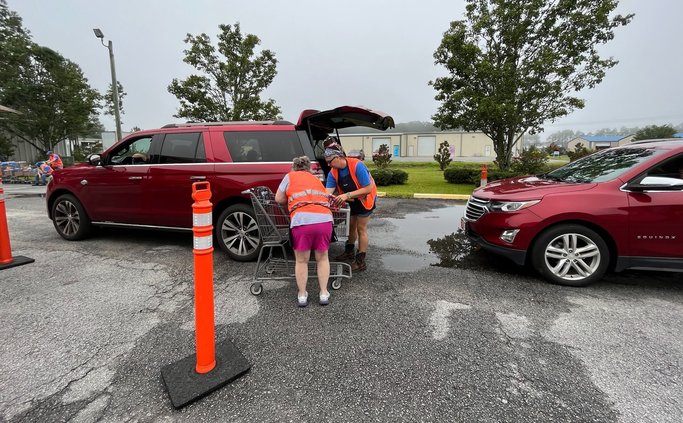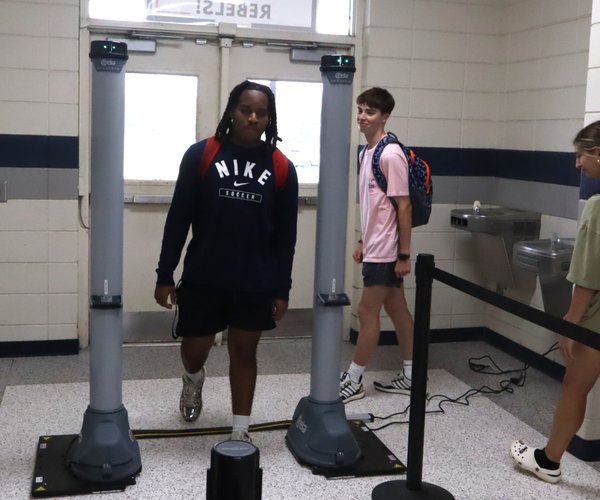RINCON — The past, present and future gathered near the Savannah River on Sunday.
About 50 people united in the Jerusalem Lutheran Church Cemetery to show their appreciation for freedom and to honor a group of African-Americans who died trying to achieve it more than 150 years ago. Several children particpated in the event that featured music and a wreath-laying ceremony led by Masons from the Widows Sons Lodge in Guyton.
In 1864, more than 100 freed slaves lost their lives as they followed 14,000 Union troops led by Gen. William T. Sherman. As the former slaves were about to make their way across the creek, the troops removed a temporary pontoon bridge.
The former slaves, unfamiliar with its deep, swift water, entered the creek anyway and many drowned. The bodies, including those of many women and children, were buried in the Jerusalem Lutheran Church Cemetery.
A piece of etched granite under a magnolia tree marks the spot where the unnamed victims rest today.
Minister Kendell Roberts, citing the works of historian Theodore DeLaney, offered more details of the tragic incident.
“The slaves did not understand army methods, strategy, and practices,” he said. “They did not go to West Point like Sherman and his fellow officers. Therefore, they didn’t understand what the Army was trying to accomplish through precise methods of warfare.
“As a result, the slaves continued, not knowing any better, to following the Union Army — and for good reason. If they continued to stay in the same place, they still saw themselves as slaves.”
Roberts said Gen. Jefferson C. Davis supervised the bridge-crossing operation. He said Davis was pro-slavery and openly disliked African-Americans.
“As the last of Davis’ soldiers crossed the pontoon bridge, there were more than 600 freed slaves at the rear on the other side of the creek. Then, surprisingly, Davis ordered the ropes be cut and the pontoon bridge be pulled away.”
The bridge removal sent a cry of agony through the former slaves, Roberts said, and many tried to swim across the creek to continue their pursuit of the Union troops.
Roberts read the remarks iof a Union soldier who saw the calamity unfold.
“There were many ignorant, simple souls to whom it was literally preferrable to die free rather than to live as slaves. As for the men, women, children and elderly who did not reach the other side of the bank, they were gathered up by (Gen. Joseph) Wheeler’s Cavalry and returned to slavery.”
Roberts said, according to Delaney’s historical account, Davis’ decision to remove the bridge had Sherman’s approval.
“The Ebenzer Creek Calamity — that’s what I call it — was the saddest moment in Sherman’s ‘March to the Sea.’ Those 600 slaves trusted Sherman’s army. They saw Sherman’s army as their ticket to freedom and they were horribly double-crossed,” he said. “The fact of the matter is that Sherman did not want to be impeded by those free slaves and Jefferson C. Davis made sure that he was not impeded by those free slaves.
“From Sherman’s standpoint, there really was no big deal about the Ebenezer Creek Calamity because he said, and I quote, ‘Jefferson C. Davis has acted honorably. He was strictly a soldier and doubtless hated to have his wagons and columns encumbered by these fallen negroes for whom we all felt sympathy.’”
Roberts said Sherman’s primary concern was to get his troops to Savannah before their food ran out.
Event moderator Leroy Lloyd, president of the Effingham County NAACP, said black leaders met with Sherman when he reached Savannah. The result of that meeting, he said, was Field Order No. 15. The order, which was never implemented, was designed to redistribute roughly 400,000 acres of confiscated land to newly freed black families in 40-acre segments.
After Roberts’ presentation, youngsters Terrian Edwards, Jarrod Baldwin and Telah Edwards, through the use of musical instruments, helped Lloyd explain the African philosophies of Sankofa — “Go back to the past and bring forward that which is useful.”
Llloyd also discussed the philosophy of Ubuntu — “I am because you are.”
“In other words, I can’t be without you and you can’t be without me,” he said. “We are because of each other.”
The event also featured music by brass instrumentalists Sean McBride, Parker Davis, Camden Collins and Bohong Cheng of South Effingham High School. Their selections included “Lift Every Voice and Sing,” “Amazing Grace” and “We Shall Gather at the River.”
The Rowdy Riders, including Lloyd, sang during the final tune.
